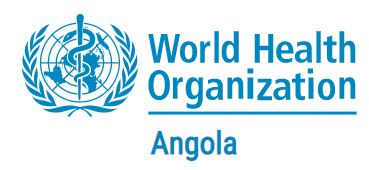In the neighborhood of Caope Velha, in the municipality of Cacuaco in Luanda, Elisa António de Melo, 70, is carrying a baby girl in her arms. She is waiting with her two granddaughters and four great-grandchildren for the polio vaccine to be administered to the children. De Melo does not know the details of the vaccine’s effects, but she can tell you it’s a lifesaver.
“My daughter asked me to bring her baby, as she’s gone to work. I don’t know what the vaccine is for either, but I believe it’s a lifesaver like other vaccines. My granddaughter has already had all her vaccinations. The card is right here,” she proudly showed off her granddaughter’s vaccination card.
According to WHO research, vaccines save millions of lives every year and are widely recognised as one of the most successful interventions for protecting people’s health.
Support to save lives
Angola successfully eradicated the circulation of the wild poliovirus in 2015. However, analysis of vaccination coverage data for bivalent oral polio and inactivated polio for the period from 2022 to the first quarter of 2023 shows that children’s immunity to poliovirus types 1, 2 and 3 is currently low in Angola, estimated at less than 60%.
For this reason, the WHO and its partners in the fight against polio have joined forces with the Angolan government and carried out the first round of immunisation in all the country’s provinces.
“The time to act is now,” says the Acting WHO Representative in Angola, Dr Humphrey Karamagi. “We all have a responsibility to support central and local government to ensure that our children under five years of age are vaccinated and protected against paralysis.”
During the two rounds of polio vaccination held in September this year, more than 5.4 million children between the ages of zero and four were vaccinated nationwide. For this purpose, with the support of the WHO and UNICEF, more than 38,000 health professionals in almost 8,500 vaccination teams were mobilised, including technicians. In the provinces of Malanje, Uíge, Zaire, Lunda Norte, and Sul, due to the high prevalence of intestinal parasites, almost 425,000 children are also taking deworming medication.
Domingas Canga, 35, a mother of five from Caope Velha, says she had witnessed tragedies in families where children had not been immunised. This has led Canga to advocate in her community and sensitise parents on the importance of vaccination. “Our children’s health should be everyone’s priority. The neighbour’s child is also our child,” she says.
Although Angola and the country’s capital, Luanda, have no cases of wild polio, the local authorities realise that the risk of importing the poliovirus is imminent.
“When a positive case is reported, 200 children around us are infected. We can’t let our guard down; we must continue vaccinating all children,” explains the provincial coordinator of the Expanded Programme on Immunization (EPI), Felismina Neto.
“A vaccinated child is a child protected from disease. We must do our bit to help the government because we can kick polio together,” she says.
Distributed by APO Group on behalf of World Health Organization (WHO) – Angola.
